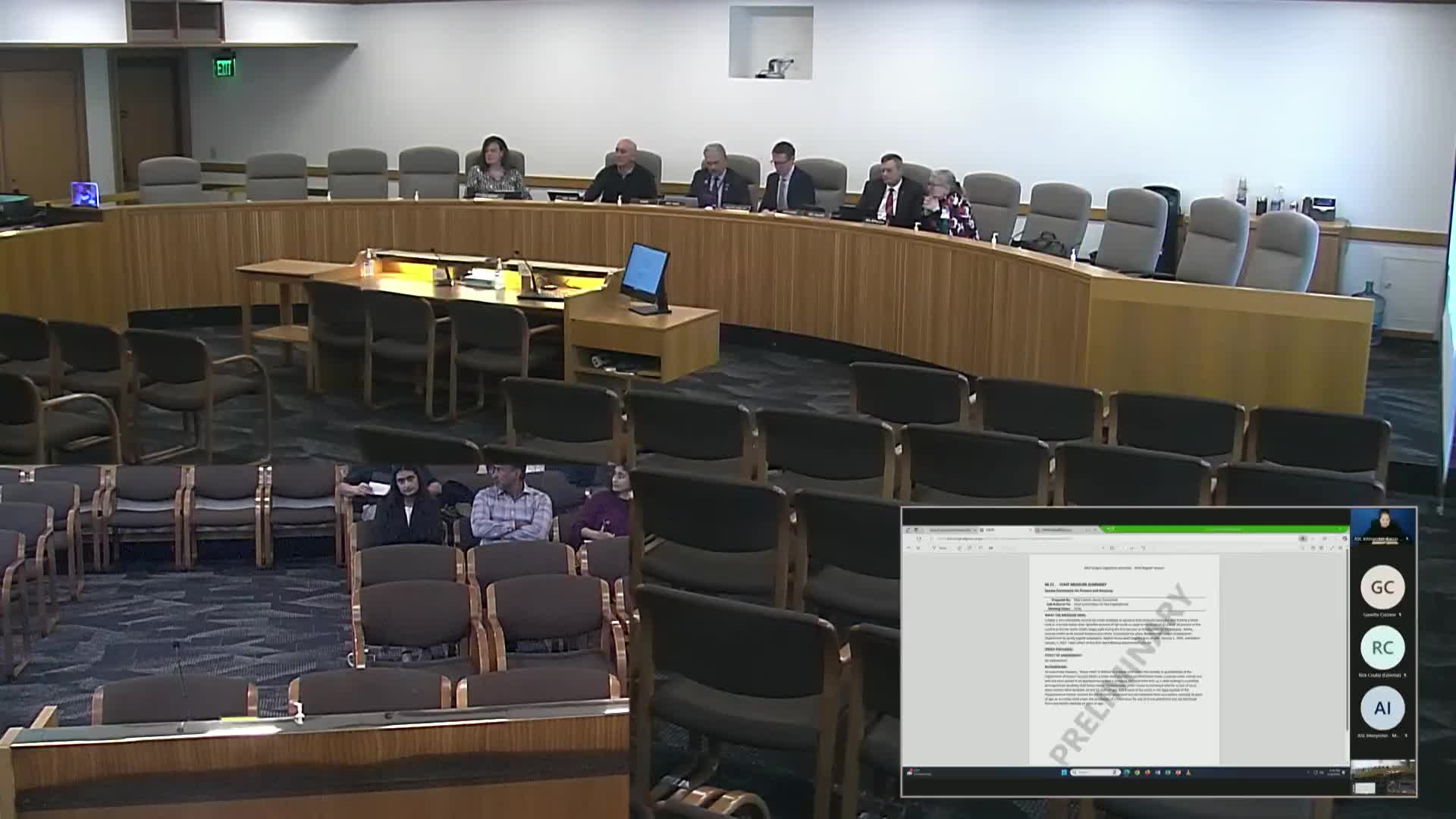Student-authored proposal SB 21 would create tax credit to encourage employers to hire foster and former-foster youth
Get AI-powered insights, summaries, and transcripts
Subscribe
Summary
Senate Bill 21 would create a nonrefundable personal and corporate income tax credit for employers who hire current or former foster youth, limited to the lesser of $2,400 or 40% of the employees first-year wages; the committee heard testimony from the student who proposed the idea and from stakeholders.
Senators and witnesses heard testimony on Senate Bill 21, a proposal to create a nonrefundable income tax credit for employers that hire current or former foster youth. The credit would be the lesser of $2,400 or 40% of the employees wages in the first year, and unused credits could be carried forward for up to three consecutive years.
Vashaka Prien, a Portland high-school junior who said she originated the idea, testified that the credit aims to reduce the employment gap faced by foster and former-foster youth. "This tax credit would remove financial barriers for businesses and incentivize them to take a chance on hiring foster youth," Prien said, arguing the policy could reduce homelessness and long-term dependence on social services.
The bill as presented requires the Oregon Employment Department to certify eligible employees and applies to tax years beginning on or after Jan. 1, 2026 and before Jan. 1, 2032. Supporters described the measure as a targeted, preventative intervention to improve employment outcomes for a vulnerable population; Marcia Kelly of the Oregon Womens Rights Coalition testified neutral and urged stronger connections to existing training and counseling programs rather than relying solely on a tax incentive.
Committee members praised the students initiative and encouraged submission of written testimony into the OLIS record. Senators discussed pilot approaches and sunset periods as ways to test the credits effect before committing to a longer-term policy.
No formal action was taken; the committee opened and closed the public hearing after receiving oral testimony and documents in the record.
